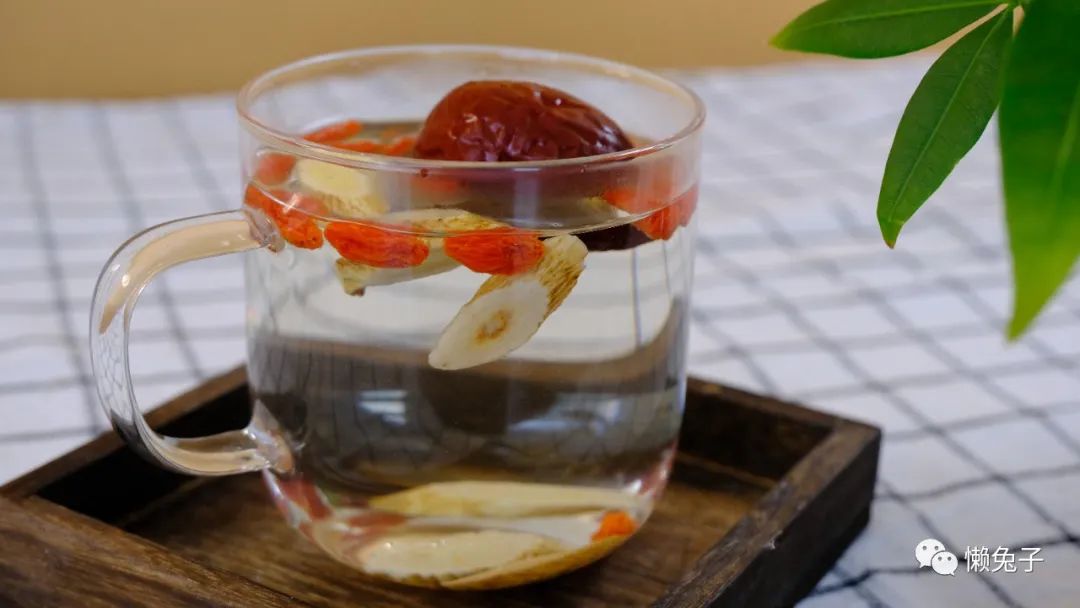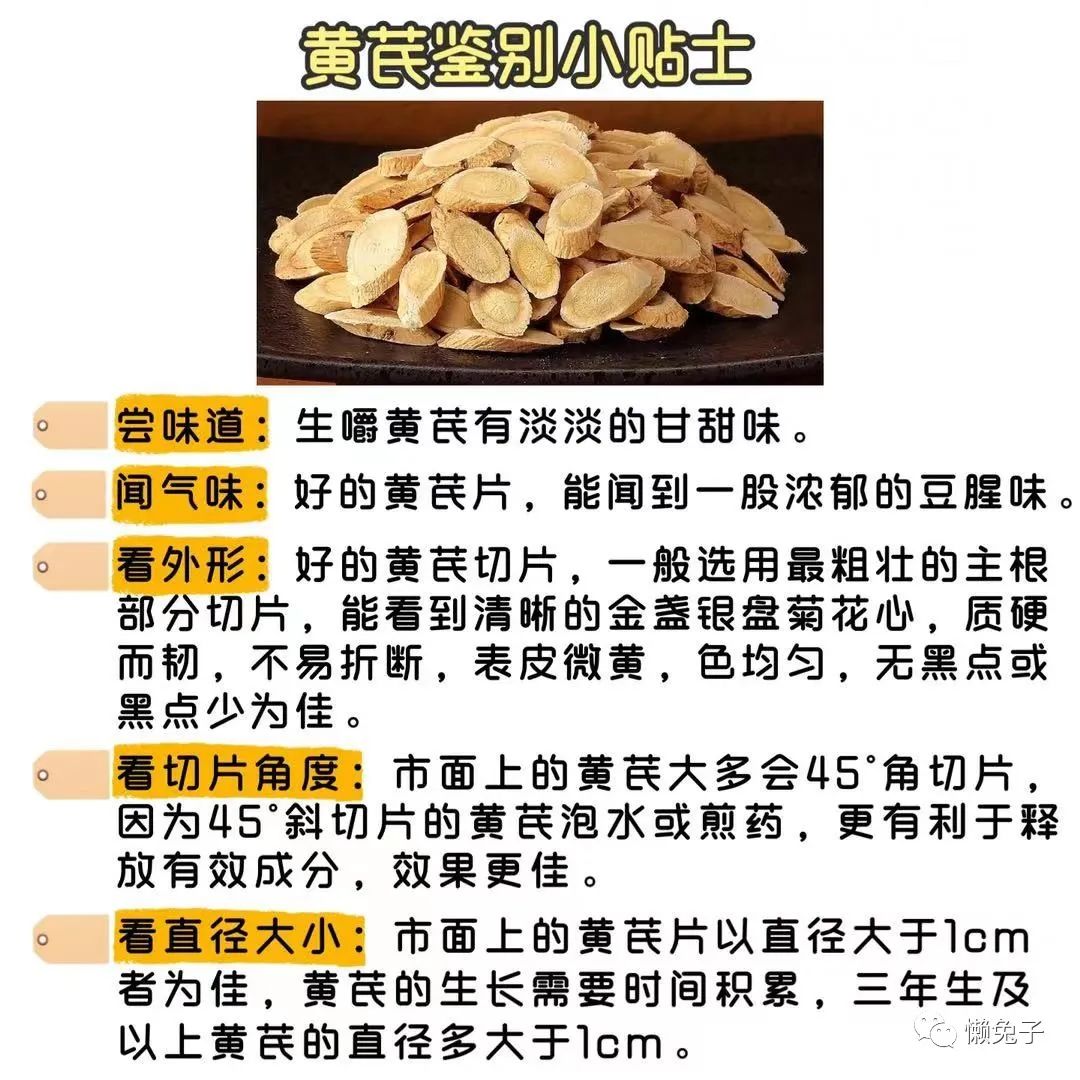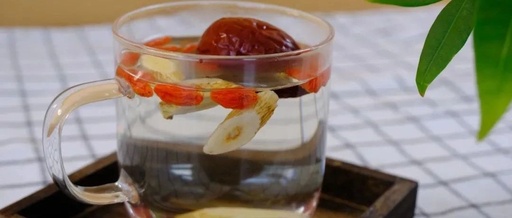Dear friends, starting this Friday or Saturday, our public account will publish articles written by several TCM teaching assistants from the Lazy Rabbit team. They are all post-90s and need a platform and opportunities. After all, the dissemination of TCM ultimately relies on young people; they are the future and hope of TCM. Please be as accommodating to them as you are to me, and I appreciate your understanding for any shortcomings.
Hello everyone, I am Xiao Zhao, and I am on duty this week.
Most people’s beautiful day begins with a cup of health tea—brewing a few slices of Huang Qi (Astragalus), adding a handful of Gou Qi (Goji Berries), or a few Hong Zao (Red Dates). It tastes good, is nutritious, and even before drinking, you already feel full of energy.

However, not everyone is suitable for such health tea. In fact, many people experience symptoms like heat, mouth sores, dizziness, and chest or abdominal distension after drinking Huang Qi. Why is this?
Since Huang Qi can be used as both food and medicine, it should be quite mild and not have significant side effects.
To address this question, we need to first look at the properties and effects of Huang Qi.
Huang Qi is warm in nature and is a key herb for tonifying Qi. It has the effects of tonifying Qi and raising Yang, stabilizing the exterior and stopping sweating, promoting urination and reducing swelling, relieving stagnation and alleviating pain, detoxifying and expelling pus, and promoting wound healing and tissue regeneration.
Any issues caused by Qi deficiency, such as dizziness and fatigue, pale complexion, poor appetite with loose stools, scanty urination with edema, sinking of the middle Qi, chronic diarrhea leading to prolapse, blood in stools, recurrent cough and wheezing, chest tightness and shortness of breath, spontaneous sweating, blood stasis, hemiplegia, numbness, and chronic ulcers that are difficult to heal, can all be considered for treatment with Huang Qi.

However, this powerful tonic has a prerequisite for use: the body must be unobstructed. If the Qi mechanism is stagnant or there is internal blockage, it can lead to worsening symptoms, making the condition more deficient or unable to absorb the tonic.
If the following two conditions occur, one must first clear the obstruction before tonifying.
1. Phlegm-Damp Accumulation. Common symptoms include dizziness and headache as if wrapped in dampness, fatigue, drowsiness, abdominal distension, loose stools, excessive phlegm, sticky mouth without thirst, edema, thick and greasy tongue coating, etc.
Using Huang Qi at this time may worsen the blockage, leading to increased abdominal distension and dizziness. It is advisable to first use herbs to resolve phlegm and eliminate dampness, and then tonify after clearing the Qi mechanism. Medications include Er Chen Wan, Wen Dan Tang, and Liang Jun Zi Wan.
2. Internal Heat Predominance. Common symptoms include aversion to heat and preference for coolness, sweating, flushed face and eyes, irritability, insomnia, dry mouth and thirst, short and red urination, dry stools, red tongue with yellow coating, and rapid pulse.
When Yang heat is already excessive, using Huang Qi, which is warm in nature, can exacerbate the heat, leading to symptoms like mouth sores and constipation. At this time, one should first consider clearing heat, using medications such as Huang Lian Shang Qing Pian and Fang Feng Tong Sheng Wan, and after the heat has improved, then use Huang Qi for tonification.
In addition to the two unsuitable conditions mentioned above, the dosage of Huang Qi is also very important.
The usual dosage of Huang Qi is generally between 15g-30g, used for stabilizing the exterior and treating Qi deficiency colds. For example, in Yu Ping Feng San, Huang Qi is used to stabilize the exterior and stop sweating, with a dosage of 30g. If used for tonifying Qi and raising Yang, the dosage is often around 18g, such as in Sheng Xian Tang and Bu Zhong Yi Qi Tang.
However, when used for blood tonification, the dosage of Huang Qi must be increased. Since Qi can generate blood, tonifying Qi can enhance the blood tonifying effect. For example, in Dang Gui Bu Xue Tang, the amount of Huang Qi must be five times that of Dang Gui, generally around 30g-50g.
If chronic ulcers are difficult to heal, the dosage of Huang Qi must also be above 30g; otherwise, it is difficult to exert its effects of tonifying Qi, nourishing blood, and promoting wound healing.
Some people experience elevated blood pressure upon using Huang Qi, and some Western doctors who do not understand TCM even advise patients to avoid all medications containing Huang Qi, claiming it “raises blood pressure.” However, they do not realize that Huang Qi is a primary herb for treating Qi deficiency type hypertension and has a good hypotensive effect.
The hypotensive effect of Huang Qi derives from its ability to tonify Qi and promote blood circulation; when Qi flows, blood flows, and when Qi is sufficient, blood vessels are unobstructed, leading to vasodilation, improving microcirculation, and reducing peripheral resistance, thereby lowering blood pressure.
However, the dosage must be large, generally above 50g. This is because Huang Qi is light in flavor and floating in nature, good at uplifting. If the dosage is light, it primarily enhances Qi mechanism, which indeed has a hypertensive effect. When used in larger quantities, it is like opening a bottle of carbonated soda; using a large amount of Huang Qi relies on its sufficient Qi to break through the blockages in the blood vessels, allowing Qi and blood to flow smoothly, thus lowering blood pressure.
Master TCM physician Deng Tie Tao is very skilled at using large doses of Huang Qi to treat diseases. When treating Qi deficiency with phlegm turbidity type hypertension, he often uses at least 30g or more of Huang Qi to achieve a hypotensive effect. For treating organ prolapse, Huang Qi must also be used in large doses of 30g or more to achieve the lifting effect.
In treating myasthenia gravis, Master Deng uses Huang Qi up to 120g. For treating Qi deficiency with blood stasis type hemiplegia, the dosage of Huang Qi is over 200g.
Additionally, Master Li Ke also has a habit of using large doses of Huang Qi; sometimes, a single prescription may even contain 500g to support Yang Qi. Master Zhu Liang Chun used 500g of Huang Qi to treat chronic nephritis, achieving excellent results.
In summary, Huang Qi is indeed a general in the realm of food and medicine that tonifies Qi. When used correctly, it can treat many diseases. However, if not used properly, it often leads to the so-called “hypertensive” side effects, making it a pity to abandon its use.
I hope this article provides some insights. When treating issues clearly caused by Qi deficiency, one can consider gradually increasing the dosage of Huang Qi based on the actual changes in the condition to enhance efficacy.

